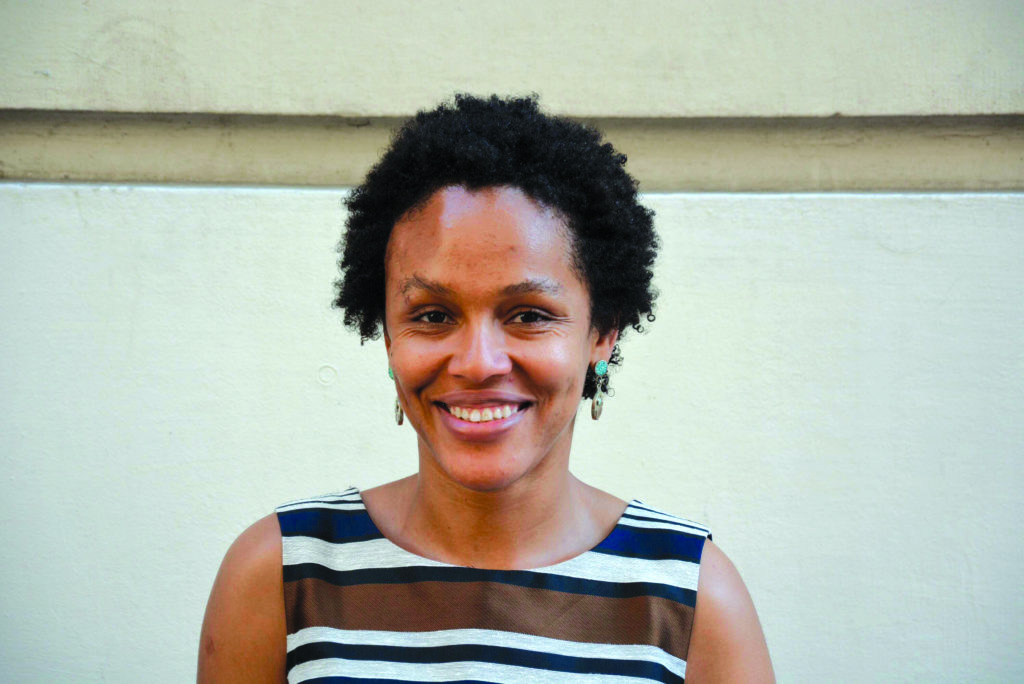On a regular school night in Pennsylvania, United States (US), Elizabeth Akua-Nyarko Patterson set out to attend a friend’s birthday party with six other students.
Chauffeured by their high school teacher, she bantered and laughed with them unaware her life as she knew it was about to change forever.
The van met with an accident, flipping over several times. By the time it landed on its head, everybody except Patterson had been hurled out on to the street. They were luckier.
Patterson was trapped under the weight of the van, waist down.
Only 18 years old at the time, she suffered severe brain injury and for the best part of the ensuing year, had her “skull removed and placed in a fridge due to the consistent swelling” in her brain. She underwent seven head surgeries, suffered a stroke and walks with a limp. Yet, despite three years of relentless hospital visits, unfathomable trauma and the most trying circumstances, Patterson managed to pass high school, and successfully.
Loading...
What motivated her to complete it, when most people would have given up any shred of hope?
“Because that is the reason we left Ghana for the US,” says Patterson.
Born in Kumasi, the cultural epicenter of Ghana, Patterson’s upper middle class parents, both of whom were bankers, did everything possible to provide the best for her and her sister.
In 1995, when her mother won the US visa lottery, a big deal in Ghana, they left everything they had worked for behind in their country in search of a better education for their daughters.
When Patterson was 10, her parents enrolled her in private school in the US, whilst the family of four shared a room in the basement of a friend’s home.
From being an outstanding student taking up to six classes, after the unfortunate mishap, Patterson had to now cope with special tutors and deploy a tape recorder for her studies. She had to request extended time to complete her exams, in seclusion, away from her classmates.
“My confidence was affected along with my sense of self and I kept asking myself ‘do I belong here’? But whenever I get those doubts, the grades come, I get an A and it validates everything and I say ‘ok let’s keep going’,” recalls Patterson.
She eventually overcame these challenges – she didn’t allow herself to have a choice – and enrolled for college in New York where she finished in three years – as opposed to the standard four years – a Bachelor of Arts in political science and business management.
After working for a short period as a teacher, both in Ghana and New York, Patterson could not cope with the physical demands of the job on account of her condition, so had to stall that career. She returned to what she loved most – studying further, obtaining a master’s degree in public administration.
As a child, she had wanted to be like her idol Barbara Walters, the American broadcast journalist, author and TV personality. However, a thesis she did on education reform policies in Ghana, during her first degree, led her down a different path.
It was only natural she felt deep empathy for children who couldn’t cope in school.
“There was a student who was struggling in school when I was teaching in Ghana, but her parents thought she was possessed by the devil and proceeded to take her to church to cast out the devil in her,” says Patterson.
She decided to take control of the situation and gave the student one-on-one tutoring for a month. The young girl’s grades improved dramatically. Patterson also attended a conference on girls’ education in South Africa (SA) as part of her research. While in SA, she realized girls with learning disabilities were discriminated against and not getting access to the best education in the country.
Patterson’s epiphany led to the Girls Education Initiative Of Ghana (GEIG) that she founded in Ghana with a mission to provide academic support for girls with special needs so they accessed higher education and benefitted from better professional opportunities. In just over a year and a half since inception, her organization supported 13 girls in the greater Accra and Ashanti regions by providing 90-100% academic scholarships with support all year round.
After overcoming the initial challenge of bureaucracy to set up GEIG, fundraising is a hurdle the organization is still battling with. Most of its start-up capital was raised predominantly through Patterson’s personal savings and support from friends and family abroad.
She is determined to keep pushing for the cause no matter the roadblocks.
At Ghana’s prestigious Vlisco Women’s Month Awards, which celebrate exceptional women in Africa, Patterson was crowned winner last year (below). She strongly believes Africa needs to develop its youth.
“I believe that right now, about 40 per cent of the African population is the youth between 18 and 35. We are vibrant, we are entrepreneurial and I believe we need to harness that to help the youth of Africa and Ghana advance.”
The youth in her country only need turn to Patterson for advice – and inspiration.
Loading...
